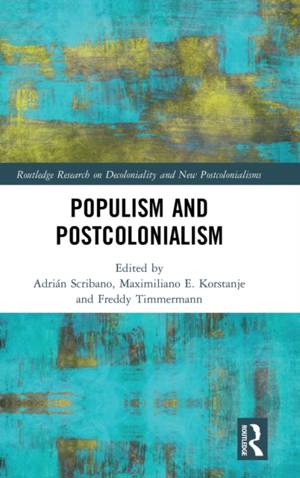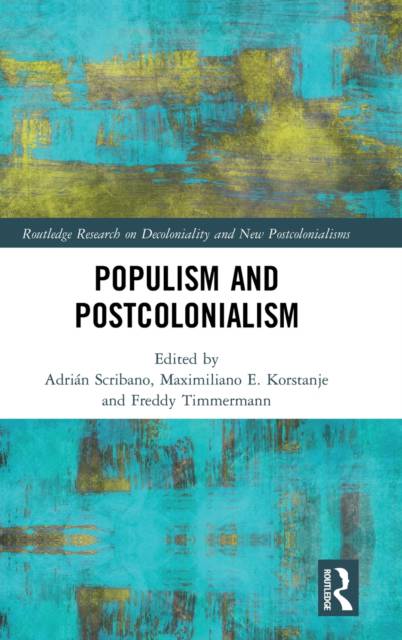
- Afhalen na 1 uur in een winkel met voorraad
- Gratis thuislevering in België vanaf € 30
- Ruim aanbod met 7 miljoen producten
- Afhalen na 1 uur in een winkel met voorraad
- Gratis thuislevering in België vanaf € 30
- Ruim aanbod met 7 miljoen producten
Populism and Postcolonialism
Omschrijving
This book investigates the interconnections between populism and neoliberalism through the lens of postcolonialism. Its primary focus is to build a distinct understanding of the concept of populism as a political movement in the twenty-first century, interwoven with the lasting effects of colonialism.
This volume particularly aims to fill the gap in the current literature by establishing a clear-cut connection between populism and postcolonialism. It sees populism as a contemporary and collective political response to the international crisis of the nation-state's limited capacity to deal with the burst of global capitalism into everyday life. Writings on Ecuador, Colombia, Chile, Brazil, Italy, France and Argentina offer regional perspectives which, in turn, provide the reader with a deepened global view of the main features of the multiple and complex relations between postcoloniality and populism.
This book will be of interest to sociologists, anthropologists and political scientists as well as postgraduate students who are interested in the problem of populism in the days of postcolonialism.
Specificaties
Betrokkenen
- Uitgeverij:
Inhoud
- Aantal bladzijden:
- 200
- Taal:
- Engels
- Reeks:
Eigenschappen
- Productcode (EAN):
- 9780367180706
- Verschijningsdatum:
- 17/10/2019
- Uitvoering:
- Hardcover
- Formaat:
- Genaaid
- Afmetingen:
- 156 mm x 234 mm
- Gewicht:
- 476 g

Alleen bij Standaard Boekhandel
Beoordelingen
We publiceren alleen reviews die voldoen aan de voorwaarden voor reviews. Bekijk onze voorwaarden voor reviews.










